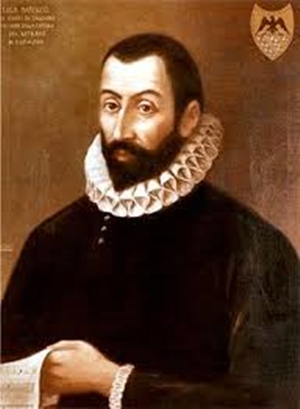Claudio Monteverdi was an Italian composer, choirmaster, and string player, born on May 15, 1567, in Cremona1. He is considered a crucial transitional figure between the Renaissance and Baroque periods of music history1. Monteverdi’s work includes both secular and sacred music, and he is particularly noted for his contributions to the development of opera.
Monteverdi’s early career was marked by his employment at the court of Mantua, where he developed his style and composed many of his early works. His opera “L’Orfeo” (1607) is one of the earliest operas still regularly performed today. Later in his career, he moved to Venice, where he became maestro di cappella at the basilica of San Marco and composed his final operas, including “Il ritorno d’Ulisse in patria” and “L’incoronazione di Poppea”.
Monteverdi’s music is characterized by its expressive melodies and innovative use of harmony and orchestration. He was also a pioneer in the use of basso continuo, a technique that became a hallmark of Baroque music. His works were largely forgotten during the eighteenth and much of the nineteenth centuries but experienced a revival in the early twentieth century. Today, Monteverdi is recognized as one of the most important composers in Western music history.

